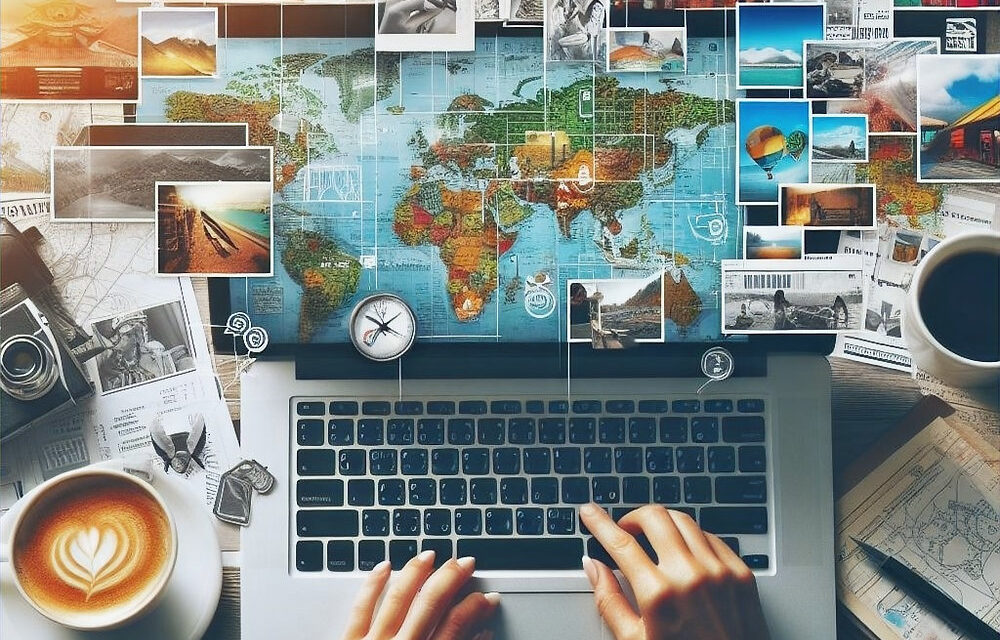In our constant development world, the travel industry is at the interface of innovation and sustainability. In a previous article, we have entered into the way in which artificial intelligence (AI) revolutionizes customer service in this sector and optimizes the processes of information request to transparent booking experiences.
By relying on this basis, we take a closer look at the possibilities of this article and examine how AI can support the travel sector to follow the dynamic conditions of the market. More than just a technological trend, Ki has the potential to lead the travel industry not only thanks to today’s challenges, but also in the sense of a more environmentally friendly and sustainable future.
Real -time adjustment
Market conditions change at an unprecedented rate and the travel industry is forced to adapt quickly. Artificial intelligence, with their ability to analyze enormous real -time data records, becomes a powerful tool for decisions manufacturers. From the prediction of travel trends to the optimization of price strategies, Ki is equipped with an agility which is necessary to deal with the complexities of the modern market.
-
Predictive analysis for travel trends: Artificial intelligence allows travel companies to predict trends before their development. By analyzing the vast data records of customer preferences, global events and economic indicators, AI can predict changes in travel problems. This allows companies to proactively adjust their offers to ensure that they meet the needs and changing wishes for travelers.
-
Dynamic price optimization:
The supply and demand fluctuations are inherent in the travel area. The models of dynamic price controlled by artificial intelligence play an important role in the response to these fluctuations. AI adapts prices in real time by continuously assessing market variables such as booking models, competitive prices and external factors such as weather or events. This not only maximizes business income, but also guarantees that travelers receive the most appropriate and fair prices. -
Risk management in real time:
Unexpected events, from natural disasters to geopolitical developments, can interfere with travel plans. AI risk management systems monitor global events in real time and allow companies to quickly assess potential disorders. With this information, travel companies can take proactive measures, redirect routes and inform travelers in time to increase general security and minimize disorders. -
Personalized customer interaction:
In the era of personalization, it is crucial to understand and meet the individual needs of each traveler. AI analyzes customer behavior, preferences and historical interactions to create tailor recommendations. This improves not only the customer experience, but also guarantees that travel services are adapted to the individual needs of each traveler.
Travel in the greener future with AI
At a time when environmental awareness has an top priority, the travel industry is in the spotlight because of its ecological effects. But instead of being a challenge, it becomes an opportunity for positive changes. Here, we are entering specific AI applications which not only optimize the processes, but also actively contribute to a more environmentally friendly travel sector.

-
Optimization of the route controlled by AI:
A significant contribution to the CO2 footprint is in transport. Artificial intelligence transforms the optimization of roads through advanced algorithms and an analysis of data in real time. By offering the most effective ways and means of transport in fuel, the AI minimizes the environmental impact of travel and not only makes travel faster, but also more environmentally friendly. -
Sustainable accommodation recommendations:
The choice of accommodation plays a crucial role in the ecological influence of travel. Artificial intelligence is used to create personalized recommendations for hotels, lodges and environmentally friendly complexes. Considering factors such as energy efficiency, waste management and environmental certifications, KI guarantees that travelers have access to accommodation options that correspond to their sustainability preferences. -
Monitoring and compensation for the CO2 footprint:
With AI -controlled tools, travelers now have the possibility of monitoring and compensating for their CO2 footprint. From transport to housing to activities, these applications offer real -time calculations of the environmental influence of each aspect of a trip. In addition, they facilitate easy access to CO2 compensation initiatives, so that travelers can contribute to environmental protection projects and compensate for ecological balance. -
Monitoring of biodiversity and nature conservation initiatives:
In addition to direct travel experience, AI applications are used to monitor biodiversity and nature conservation efforts. Drones that are equipped with natural AI technology landscapes and help to identify and fight against environmental threats. Thanks to active participation in nature conservation initiatives, the travel industry can become a positive force for the preservation of natural miracles in the world.
While we are starting to explore the role of AI in the conception of the future of travel, we invite you to join us and imagine a journey that exists harmoniously on innovation and sustainability. Travel to a more responsible and environmental travel industry begins here. Contact us for more information!





